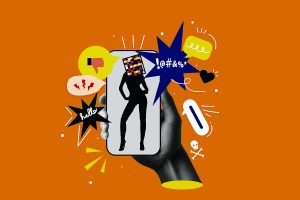Can AI make us less lonely?
A new generation of artificial-intelligence apps called AI companions is designed to simulate natural conversations and keep people company. AI assistants like ChatGPT can do those things to some extent, but AI companions are designed to respond in a sympathetic, realistic way when you share your thoughts or problems. They can even role-play, pretending to be your partner, for instance, to practice tough conversations.
Most of these programs are still at a relatively early stage, and are just building an audience. So we don’t know yet whether they’ll be a good substitute for people looking for meaningful connection, or instead isolate them from real-world relationships.
But for now, we can test a simple question: Do these AI companions really work? Do they really provide the emotional support that people need, and make them feel less lonely?
My studies with my colleagues show that the best of these apps really do work—and work well. People who turn to them to beat loneliness, in large part, get the results that they want.
Facing a crisis
Loneliness—feeling solitude because your level of social connection falls short of what you desire—afflicts one-third of adults globally and is increasing. It is known to cause mental-health problems like depression and anxiety, as well as physical problems, such as an increased risk of dying for cancer patients.
My fellow researchers—Ahmet K. Uuralp and Zeliha O. Uuralp at Bilkent University and Stefano Puntoni at the Wharton School—and I investigated AI companions’ impact on loneliness in a number of ways.
We started by analyzing 50,000 app reviews of five popular AI companions, looking for how often the reviews mentioned loneliness, and how the number of mentions affected their ratings. The more mentions, the more people might use the apps to help with loneliness. The higher the rating, the more effective the app. We also looked at reviews for ChatGPT, to get an idea of how companions stacked up against a general AI assistant.
Unsurprisingly, only 4% of ChatGPT reviews mentioned loneliness. But the companion apps turned in a much better showing, going as high as 20% for one app. And, among AI companion apps, the more the app’s reviews mentioned loneliness, the more stars it received and the more positive its reviews were.
The implication is clear: The more people used the companion apps specifically to reduce loneliness, the more they got out of them.
We then examined the effectiveness of AI companions in a different way. We recruited about 1,100 online participants and asked them to rate their loneliness on a scale of one to 100 each day of the week, and measured how much it changed day to day. One group interacted daily with a single AI companion that we created for the experiment; the others didn’t.
Those who used the companion reported a significant decrease in loneliness, showing an average reduction of 16 percentage points over the course of the week. Moreover, participants who interacted with the AI companion experienced 14 percentage points less loneliness on average from day to day, compared with those who had no interaction.
In a follow-up study involving about 600 online participants, we assigned participants, during one day, to interact with either an AI companion or a real person; to browse YouTube videos online (a popular way that people in another study said they used technology to cope with loneliness); or to do nothing. They performed those actions—or did nothing—for 15 minutes, with participants rating their loneliness levels both before and afterward. We also asked the same participants to predict what their loneliness levels would look like after the interaction that day.
Only those who interacted with a human or the AI companion—not those who did nothing or interacted with YouTube—experienced a reduction in loneliness levels. Their results were roughly the same: Contact with people brought a 19-percentage-point drop in loneliness levels, and 20 percentage points for a companion. Participants also were less lonely after interaction with the AI companion than they had predicted.
Feeling heard
Why do AI companions make us feel less lonely? To answer that question, we conducted a study involving about 1,500 online participants. We assigned people to interact with either an AI companion or an AI assistant, which was programmed to assist with various topics without offering emotional responses.
We found that the more people felt heard—as measured by asking them how much they agreed with statements like “The chatbot seems able to appropriately recognize the mood of the user from the conversation and to respond accordingly” and “The chatbot was empathetic”—the greater the reduction in loneliness they experienced. Similarly, those who interacted with the AI companion experienced a significantly greater average reduction in loneliness levels (24 percentage points) than those who interacted with the AI assistant (6 percentage points).
The fact that not all AI companions have high mentions of loneliness implies that some apps aren’t alleviating loneliness effectively (if at all). In our own qualitative observations, we notice that some apps focus more on being exciting and engaging, such as by allowing you to interact with various AI personalities, without making users feel heard.
There is still the question of whether AI companions will be good for society. Some people fear, reasonably, that companions will turn people into shut-ins who avoid human contact. But any debates about the long-term impact of companions should account for their potential for reducing loneliness.
Because we aren’t doing well as a society on loneliness, we should at least keep an open mind on any tool that helps at all.
Julian De Freitas is an assistant professor of business administration at Harvard Business School. He can be reached at reports@wsj.com .














